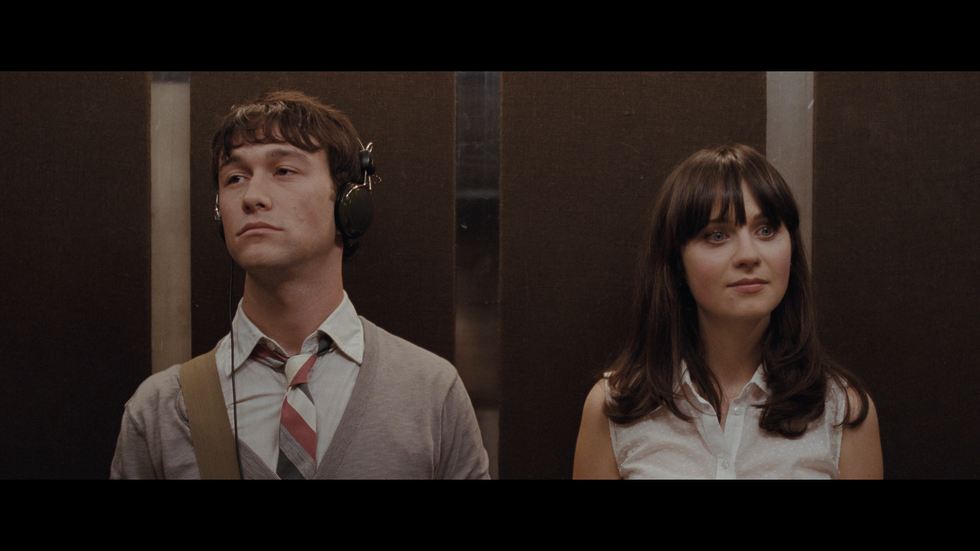When I first heard of the manic pixie dream girl, I was fascinated.
According to Wikipedia, this archetype refers to a fictional female character who is—according to film critic Nathan Rabin who coined the term—"that bubbly, shallow cinematic creature that exists solely in the fevered imaginations of sensitive writer-directors to teach broodingly soulful young men to embrace life and its infinite mysteries and adventures." The description goes on to say these females help the leading male roles “without pursuing their own happiness,” and therefore they never evolve themselves: subsequently the male does not evolve either.
Rabin first based the concept off of Kirsten Dunst’s character in the film “Elizabethtown,” which I have never seen. Wikipedia offers several other examples though. Some I'm familiar with are Audrey Hepburn’s role as Holly in “Breakfast at Tiffany’s,” Julie Andrews’ role as Maria in “The Sound of Music,” and even Belle in “Beauty in the Beast.”
It is my understanding, given these examples, that these female characters are really just there to benefit the male lead. They’re usually a love interest, but their “love” is only there to compliment to the male who is destined to fall for them. They don't change, they don't progress. They're a constant force.
Among the examples given is Summer Finn—Summer, played by Zooey Deschanel in the film “500 Days of Summer.” At first, I thought this had to be a mistake. Though I don't have a particularly strong connection to this film, I felt I understood it well enough to—at the very least—pick up on the fact that the movie was called “500 Days of Summer.” How could Summer be a manic pixie dream girl, when not only was the film named after her, but it was her love story with Tom? It was about her.
Sure, in the beginning of the film the narrator starts out by saying, “This is not a love story. This is a story about love.” Butgiven that there was undoubtedly an element of romance, and love—though it may have been one-sided—I would have to argue that it was a love story. And since the title is “500 Days of Summer,” it is only fitting that the story is about Summer.
Turns out, I got this all wrong.
Summer is the epitome of the manic pixie dream girl—something I realized as soon as I came to the life-changing (not really) realization that “500 Days of Summer” is not actually about Summer at all. It is a story about Tom.
I don’t claim to be an expert on this film by any means—though clearly I have given it a lot of thought. That said, I probably won’t describe this next bit perfectly, but it is incredibly relevant to my argument.
There’s an instance in the film when Tom—because yes, the story is only about Tom—is talking about the traits of Summer that fascinate him, the parts he loves about her.
“I love her smile, I love her hair, I love her teeth…” he goes on. After she dumps him though, it becomes, “I hate Summer, I hate her crooked teeth. I hate her 60s haircut…” he goes on.
Additionally, during their relationship, we see several instances of Tom observing Summer's features—expressions that show she cares for him.
After the breakup, however, Tom sees these expressions entirely differently. Her happiness with him, for example, becomes mere satisfaction—amusement almost.
And I realized it. The story isn't about Summer at all. It's about Tom. It's about how Tom perceives Summer, how Tom loves Summer, and how Tom glorifies Summer. Summer's story is never actually told.
She doesn't evolve. She's just there, by some means and for some reason, for the male character. In this way, he is sort of like a parasite.
Of course, in this story, unlike in "The Sound of Music" or "Beauty in the Beast," the manic pixie dream girl doesn't wind up with the leading male. She doesn't want to be with him. She doesn't love him.
That said, I feel "500 Days of Summer" offers us an alternate manic pixie dream girl. I wouldn't say she's better than the others. But still, I find it interesting that the film's meaning has absolutely nothing to do with her: it's as though she is arbitrary.
Rather than being a support system—a safety net— for Tom to fall back on, Summer, in fact, breaks up with him. I would argue that perhaps Summer solved the manic pixie problem.
After all, she doesn't hang around for Tom's benefit; they want different things, though Tom doesn't realize it. Ironically, she changes the entire course of the story due to the fact that she doesn't evolve one bit.
She is entirely permanent—true, a constant force.
Of course, there are other examples of this. I would almost argue Mary Poppins is one, as is Margo Roth Spiegelman in John Green's Paper Towns.
These female characters are elusive— enigmas of sorts. Their mere existence alters the entire story.
But then again, maybe I've given it too much thought.









































